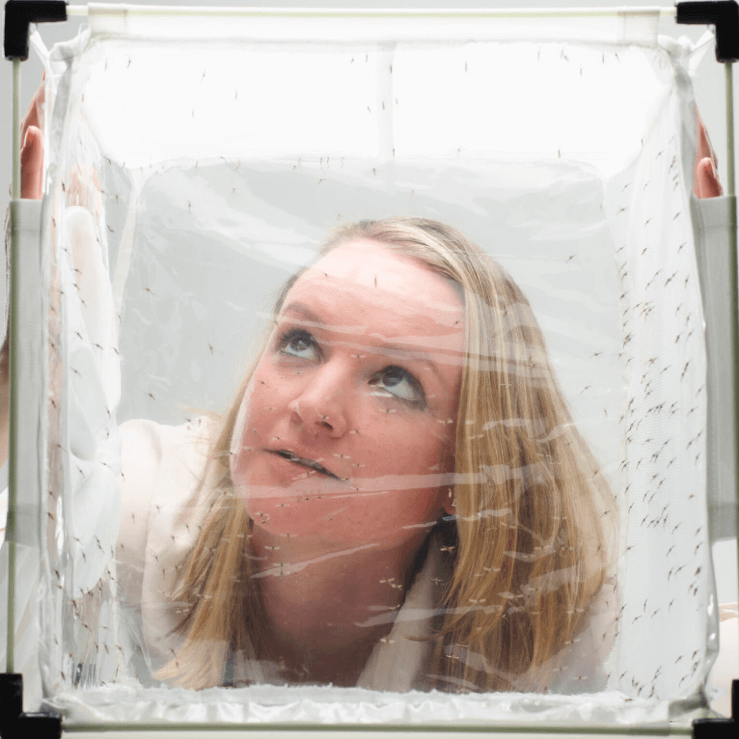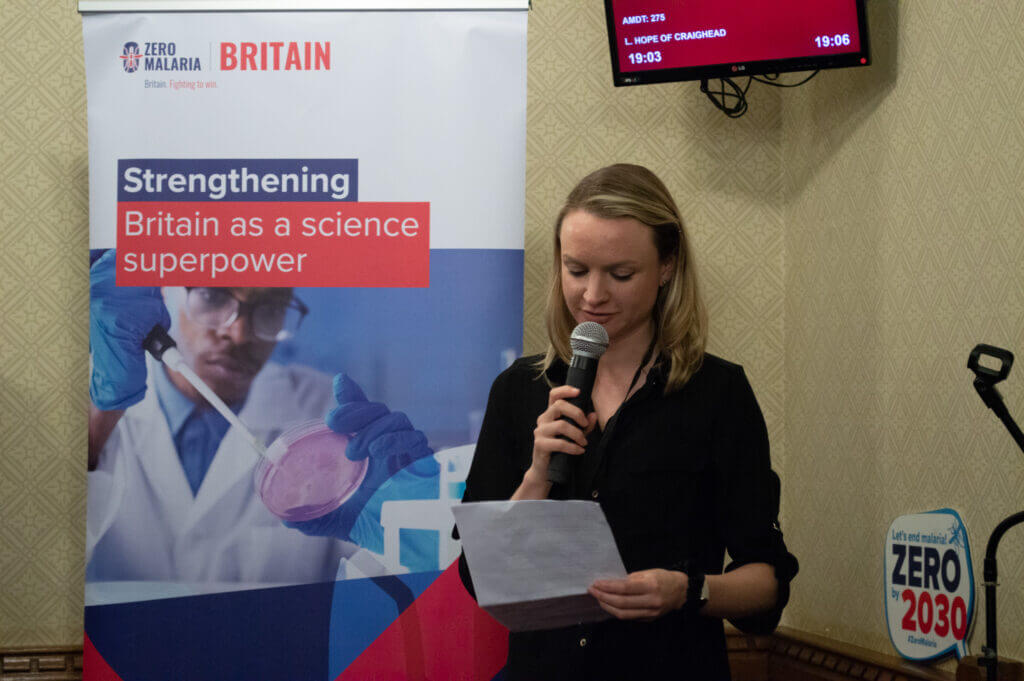Malaria researchers celebrated as new “rock n roll stars” this World Malaria Day


In the lead-up to World Malaria Day, I was honoured to be photographed alongside other malaria researchers by British photographer John Rankin, renowned for his portraits of Kate Moss, Madonna, David Bowie and Queen Elizabeth II. He described malaria researchers as “the new rock n roll stars of our time”, highlighting how malaria is the world’s oldest and deadliest disease.
I work as a senior research technician at the Crisanti lab, Imperial College London, part of the global Target Malaria consortium, investigating spermatogenesis and the embryo sex determination pathway in the malaria mosquito, so how they reproduce and develop into a female or male, and creating new gene drives.
Target Malaria is investigating the potential of gene drive technologies to help eliminate malaria transmission in Africa by reducing the population of malaria mosquitoes. Gene drive is a genetic phenomenon that occurs in nature that biases inheritance, causing a selected trait to rapidly spread through a species via sexual reproduction.


Credit: Rankin
It was great to see these photos published in The Telegraph. Other researchers working in malaria were featured in the piece, including Ana Lisa Valenciano, a senior scientist at GSK working in drug discovery, Jo Salkeld, a doctor and clinical research fellow at Oxford running clinical trials on malaria vaccines and Georgia Whitton, a senior data scientist working in the Wellcome Sanger Institute’s Genomic Surveillance Unit researching drug resistance, rapid test evasion and vaccine effectiveness.
I also spoke at an event on the eve of World Malaria Day at the House of Lords organised by the APPG on Malaria and NTDs, Malaria No More UK and Baroness Liz Sugg. The aim of the reception was to raise the profile of the ongoing fight against malaria, and to celebrate the work being done by British-backed scientists to end malaria. My speech focused on my experiences of malaria, how I joined this lab for the incredible potential of these technologies, and highlighting the importance of further support for development of new tools like these and of ensuring they can reach those who need them.
As the malaria mosquito and parasite become increasingly resistant to our current tools, new innovations are critical to help end malaria in this generation. I feel proud to be contributing towards this fight and hope to see malaria eliminated in my lifetime.

